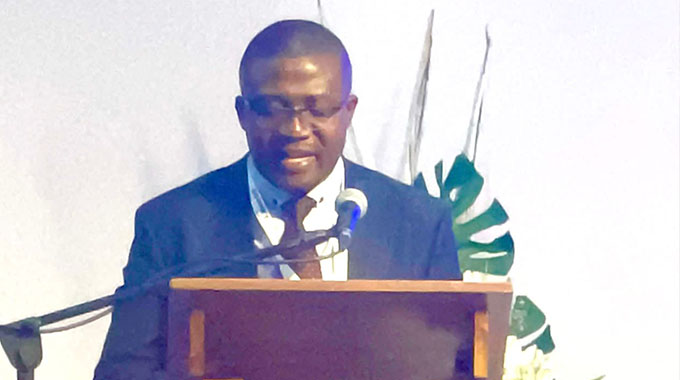Broad-based empowerment way to go
The indigenisation and economic empowerment programme has always been a controversial issue that has elicited varied responses from Zimbabweans and the international community alike.
The contention has largely been on the implementation aspect, with a lot of perception around how this should be done for the betterment of our economy.
Fears have been that the process, if not tackled well, may end up benefiting a few, at the expense of the majority while others suggest that it is better to enlarge the cake than share only the bit that is already there. But Youth, Indigenisation and Economic Empowerment Minister Saviour Kasukuwere insists Zimbabweans will emerge victorious after all has been said and done.
A trip we had last week to the Royal Bafokeng Kingdom in Rustenburg, South Africa, was a real eye-opener.
It reflected a dimension of the empowerment process that could transform the lives of many Zimbabweans, particularly those in mining communities.
What I respected the most, at the outset, was Zimbabwe’s desire to learn from those that have done well as it seeks to genuinely empower its people. Sometimes there is no need to re-invent the wheel.
Furthermore, learning from those that may seem ahead of us in one aspect or the other is the hallmark of maturity and will certainly yield results.
The people of Royal Bafokeng, 300 000 of them, have witnessed a massive transformation of their lives over the past five years through an empowerment process that saw them clinch a 13 percent stake in Impala Platinum, with more investments in another major platinum mine, in Vodacom, FNB Bank and the property sector.
As the Royal Bafokeng Holdings chief executive, Mr Niall Carroll, narrated the journey to prosperity for the kingdom, it sounded more like a very good script for a movie on empowerment efforts in Africa.
Before they converted their royalties into equity, the Royal Bafokeng community used to get mining royalties from Implats, which proved hardly enough to improve their lives and, subsequently, a deal was struck in 2006 that made Royal Bafokeng the largest single shareholder in Implats, the Australian-listed platinum giant.
Implats owns 100 percent of Zimplats, which means the Bafokeng Kingdom indirectly owns a stake in Zimplats. With the dividends and profits realised from their shareholding in Implats, RBH has managed to invest in more portfolios that cut across the mining, finance, property and telecommunications sector.
They have built state-of-the-art sporting facilities, invested in education, health and other infrastructure. All this was facilitated by the local traditional and elected leaders on behalf of Bafokeng — known as the “People of the Dew”.
This is a kingdom that was almost bankrupt in 1998 but the now wealthy small kingdom epitomises the benefits of empowerment projects, an approach that could dove-tail into Zimbabwe’s broad-based empowerment initiatives under which traditional leaders are expected to ensure that their respective communities benefit from the minerals in their respective areas.
This has proved feasible if applied correctly.
Mr Carroll summed it well: “It’s a story about generations passing on assets to future generations. You just need to get the important things right.”
He stressed the need for good governance within the respective communities to ensure order and a proper investment system.
It is important, in this respect, to have a clear budget, with the community having a say in what kind of investments they would want to undertake.
“Often, mining companies take advantage of lack of expertise. They use a very valuable asset and yet pay the community just a little bit of money,” said Mr Carroll in reference to the meagre resources that Implats used to pay as royalty compared to the value of the minerals they extracted.
The trip gave a different dimension to the empowerment process and everyone in our delegation was convinced that if implemented well, the indigenisation and economic empowerment initiative could transform the livelihoods of various communities in this country, particularly within mining hubs where over the years, the local communities have been prejudiced.
The broad-based approach would certainly achieve results.
Chairman of the National Indigenisation and Economic Empowerment Board Mr David Chapfika concurred: “Indigenisation should be a win-win situation. It’s broad-based thereby correcting previous imbalances. All stakeholders should benefit.”
A dinner hosted for the delegation and attended by Zimbabwean businessmen, some of them based in South Africa, gave a clearer picture of where the indigenisation process was headed.
The Zimbabwean delegation comprised Local Government, Rural and Urban Development Minister Ignatius Chombo, Minister Kasukuwere, MP for Mhondoro Ngezi Bright Matonga, NIEED chairman David Chapfika, his chief executive Mr Wilson Gwatiringa, chiefs, the public and private media.
“We chose Bafokeng because they have something similar to what we want to do in Zimbabwe. The aim is to ensure the community benefits from minerals found in the area in a more systematic manner,” said Mr Gwatiringa.
[email protected]









Comments